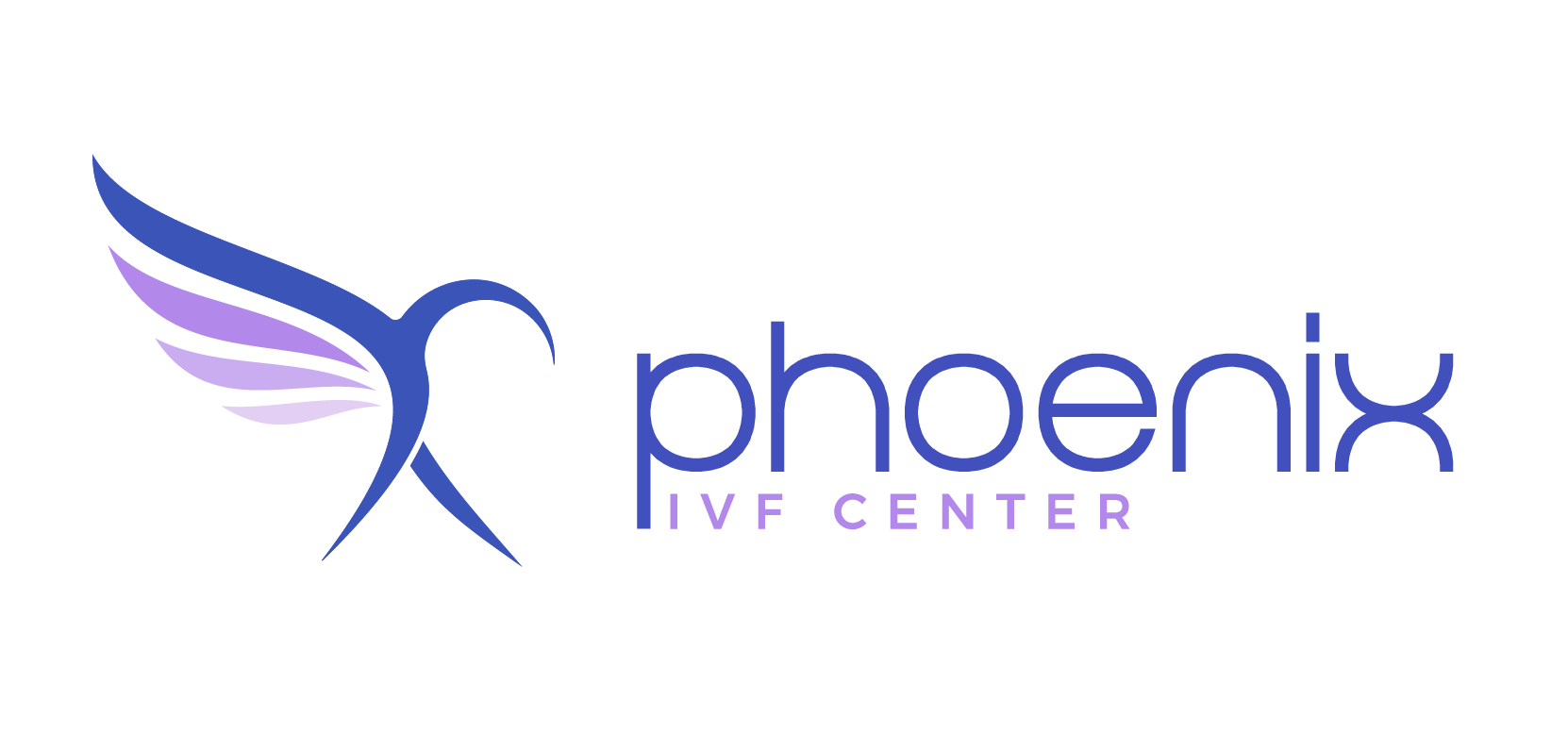The Importance of Genetic Screening in IVF
Starting the IVF process can be both exciting and overwhelming. Couples facing infertility often have many questions about how they can increase their chances of a healthy pregnancy. One of the most promising advancements in IVF treatment is genetic screening. At Phoenix IVF Center, located in the serene and beautiful environment of Northern Cyprus, we utilize the latest genetic screening techniques to ensure our patients achieve a healthy pregnancy and successful outcomes.
What is Genetic Screening in IVF?
Genetic screening is a process where embryos obtained through IVF are tested for genetic abnormalities before being implanted in the uterus. This screening process allows IVF specialists to identify which embryos have the highest likelihood of resulting in a successful pregnancy, minimizing the risk of genetic disorders. At Phoenix IVF Center, we use advanced genetic testing methods like Preimplantation Genetic Diagnosis (PGD) and Preimplantation Genetic Screening (PGS). By selecting the healthiest embryos for transfer, we increase pregnancy success rates and reduce the risks of miscarriage and certain genetic disorders.
What is the Difference Between PGD and PGS?
One of the common questions we receive at Phoenix IVF Center is about the distinction between these two tests, and it’s an important one.
- PGD (Preimplantation Genetic Diagnosis) is used to test for specific genetic disorders such as cystic fibrosis, sickle cell anemia, or Tay-Sachs disease that parents may be carriers of. It is often recommended for couples with a known history of genetic diseases.
- PGS (Preimplantation Genetic Screening) is a more general screening method that detects chromosomal abnormalities such as Down syndrome or conditions that may increase the risk of miscarriage. It is typically recommended for couples with advanced maternal age, recurrent miscarriages, or previous unsuccessful IVF attempts.
At Phoenix IVF Center, both PGD and PGS are available. With state-of-the-art technology and an experienced team, we carefully evaluate each embryo.
Who Should Consider Genetic Screening?
Genetic screening is not necessary for every IVF treatment but is strongly recommended in certain situations. At Phoenix IVF Center, we recommend genetic screening for the following cases:
- Couples with a family history of genetic disorders
- Women over the age of 35 (as chromosomal abnormality risks increase with age)
- Couples who have experienced multiple miscarriages
- Couples with several failed IVF cycles
- Those looking to increase their chances of a healthy pregnancy and reduce genetic disorder risks
Our experienced counselors at Phoenix IVF Center will work with you to evaluate whether genetic screening is the right choice for your situation.
How Does Genetic Screening Improve IVF Success Rates?
One of the greatest benefits of genetic screening is its ability to increase IVF success rates. By selecting and transferring only the healthiest embryos, the likelihood of a successful pregnancy increases significantly. Additionally, genetic screening reduces the risk of miscarriage by identifying embryos with chromosomal abnormalities that could result in pregnancy loss. At Phoenix IVF Center, we have witnessed how genetic screening has helped many couples achieve their dream of parenthood. Our success rates speak for themselves, and we are proud to offer the latest reproductive technologies to achieve the best outcomes.
Does Genetic Screening Harm the Embryo?
A common concern for couples is whether genetic screening harms the embryo. At Phoenix IVF Center, we understand these concerns, but the procedure is completely safe. Genetic screening is performed by taking a few cells from the embryo during its development stage on the 5th or 6th day. This biopsy does not affect the embryo’s ability to implant or develop normally. In fact, embryos that undergo genetic screening have a higher likelihood of resulting in a healthy pregnancy. At Phoenix IVF Center, we use advanced techniques to ensure the safety and health of every embryo. The health of your future baby is our top priority, and we take every precaution to protect it.
What Diseases Can Genetic Screening Detect?
Genetic screening can detect a wide range of hereditary diseases and chromosomal abnormalities. Some of the conditions that can be identified include:
- Down syndrome
- Cystic fibrosis
- Sickle cell anemia
- Huntington’s disease
- Tay-Sachs disease
- Muscular dystrophy
At Phoenix IVF Center, we tailor our screening protocols to your needs. Whether you’re concerned about a hereditary condition or simply want to ensure a healthy pregnancy, we are here to provide the best care.
How Much Time Does Genetic Screening Add to the IVF Process?
Another common question is how much time genetic screening adds to the IVF process. While the screening itself only takes a few days, it does extend the process slightly. After the embryos are obtained through IVF, a biopsy is performed, and the cells are sent for genetic testing. The duration of the test depends on the type being conducted, ranging from a few days to 7-10 days. As a result, there will be a delay in the embryo transfer, as we wait for the test results to select the healthiest embryos. However, this short delay is well worth it. By ensuring only the best-quality embryos are transferred, the chances of a successful pregnancy are significantly increased. At Phoenix IVF Center, we are committed to delivering the best outcomes for every patient.
Is Genetic Screening Necessary for Every IVF Cycle?
Genetic screening is not required for every IVF cycle, but it can be highly beneficial in specific cases. For couples with a history of genetic disorders or those who have experienced failed IVF attempts, genetic screening can provide invaluable insights to increase the chances of a successful pregnancy. At Phoenix IVF Center, our team works closely with you to determine whether genetic screening is the right choice for your IVF journey. We take a personalized approach and recommend the best treatment path tailored to each patient’s needs.
What is the Cost of Genetic Screening?
Cost is always a consideration in IVF treatments, and genetic screening is no exception. In addition to the general cost of IVF, genetic screening can be a significant expense for some couples. However, many couples find that the benefits far outweigh the costs. Genetic screening can help avoid the emotional and financial losses associated with multiple failed IVF attempts or miscarriages. At Phoenix IVF Center, we offer various payment options and financial plans to ensure our services are accessible to as many couples as possible. We understand the challenges you may face on your journey to parenthood and are here to support you every step of the way.
Genetic Screening: An Exceptional Experience at Phoenix IVF Center
Genetic screening has revolutionized the field of IVF, offering couples the chance to achieve a healthy pregnancy and successful outcomes. Whether you’re concerned about hereditary genetic disorders or simply want to increase your chances of a healthy pregnancy, genetic screening may be the solution you’re looking for. At Phoenix IVF Center, we combine over 30 years of experience with the latest technology to provide our patients with the best care. Our personalized approach ensures that every patient receives a treatment plan tailored to their needs, while our commitment to excellence has helped thousands of couples fulfill their dream of parenthood. If you’re considering IVF treatment with genetic screening, contact Phoenix IVF Center to learn how we can assist you on your journey to becoming a parent. We’re here to provide the support, guidance, and world-class care you deserve.


